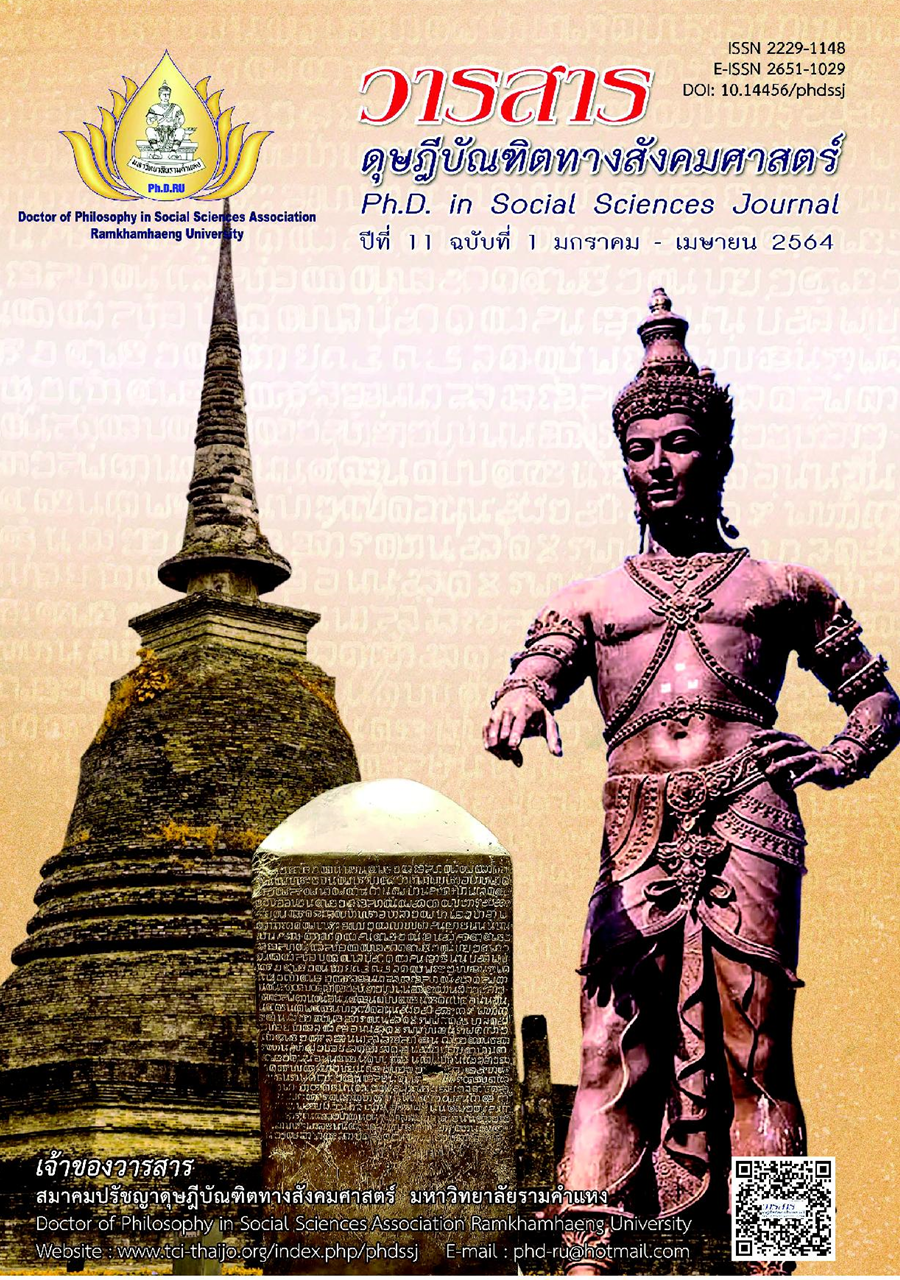Critical Factors influencing the English reading achievement of Matthayom Sueksa six students at schools in Bangkok Metropolis
Main Article Content
Abstract
This research article examines (1) the levels at which critical factors influencing English reading achievement of Matthayom Sueksa six students of schools in Bangkok Metropolis are; (2) correlations between these critical factors; and (3) the direct, indirect, and total influence of these factors. Utilizing the multi-stage sampling method, the researcher selected a sample population consisting of 1,000 Matthayom Sueksa six students. The research instruments for test and a questionnaire. Data analysis was carried out by means of successive applications of the SPSS computer software program for determining basic statistical relationships in addition to the employment of Pearson’s product moment correlation coefficient (PPMCC) method. (CFA) and structural equation modeling (SEM) were used .
Findings are as follows: (1) All factors exhibited means and percentages at a high level. (2) All factors exhibited positive relationships with the critical factors governing English reading achievement at the statistically significant level of .01. The correlation coefficient (CC) fell at the highest level at between 0.63 and 0.98. And (3) The correlation coefficient model had congruency with the empirical data with factor showing the highest level of direct influence was the factor of aptitudes and learning capabilities (0.98). The factor exhibiting the highest level of indirect influence was the factor of attitudes (0.41).
Article Details
Academic articles, research articles, and book reviews in the Ph.D. in Social Sciences Journal are author’s opinions, and not the publisher’s, and is not the responsibility of the Ph.D. in Social Sciences Journal Philosophy Association, Ramkhamhaeng University. (In the case that research is done on human, the researcher has to be trained in Ethics for Doing Research on Human Training and has to produce the evidence of the training).
References
Association of Southeast Asian Nations. (2012). ASEAN declaration on environmental sustainability. Retrieved from https://asean.org/?static_post=asean-declaration-on-environmental-sustainability
Bloom, B. S. (1976). Human characteristics and school learning. New York: McGraw-Hill.
Chularut, P. (2016). Metacognition and Learning. Srinakharinwirot University, Faculty of Education. [In Thai]
Crystal, D. (2003). English as a global language (2nd ed.). Cambridge University Press.
English Language Institute. (2014). The Common European Framework of Reference for Language (CEFR). Author. [In Thai]
Groves, G. D. (2012). Creating sustainable change in education in Thailand: An inside-out look at nation building, regionalization, and globalization. Chulalongkorn University Press.
Lincharoen, E. (2009). Causal factors affecting the low O-Net achievement of Pratom 6 students and Mattayomsaksa 6 students. National Institute of Educational Service. [In Thai]
Papatsaranon, N. (2015). The development of DRU model to enhance metacognition for graduate diploma program in teaching profession students. Silapakorn University, Graduate School. [In Thai]
Yoelao, D.(1992). Research reports on the synthesis of research related to Rearing children in Thailand Using meta analysis. Behavioral Science Research Institute, Srinakharinwirot University. [In Thai]


